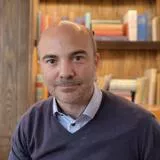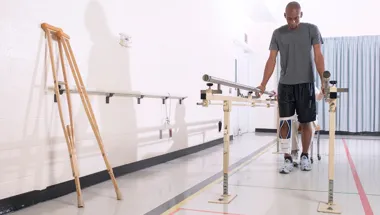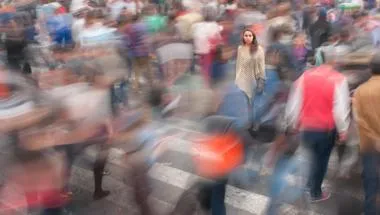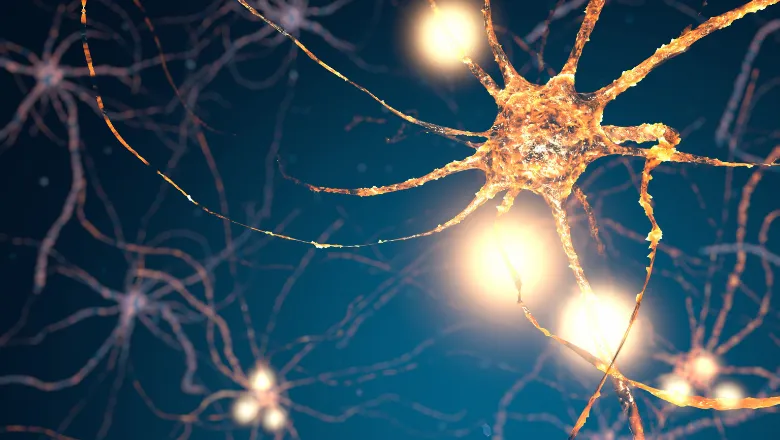
Dr Marco Davare
Reader in Neurophysiology
- School Lead for EU Funding & Partnerships
Biography
Dr Marco Davare is a Reader in Neurophysiology at King’s College London. Dr Davare is the KCL lead on TReND, a Horizon Europe MSCA-DN, which includes collaborators from the Institute of Psychiatry Psychology & Neuroscience, the Faculty of Nursing, Midwifery and Palliative Care and six other European universities. He has a BSc in Physiotherapy and Rehabilitation from Université catholique de Louvain (UCLouvain, Belgium), an MSc in Biomedical Sciences and obtained a PhD in Neurosciences in 2008 (UCLouvain). Dr Davare then joined the UCL Queen Square Institute of Neurology, University College London, as a Wellcome funded post-doctoral fellow. In 2012, he was awarded a prestigious BBSRC David Phillips Fellowship and built his first lab combining non-invasive brain stimulation and virtual reality environments for studying cortical mechanisms underpinning the sensorimotor control of skilled hand movements. He then moved to KU Leuven (Belgium) as Associate Professor, funded by an FWO Odysseus programme. In 2019, he co-founded a Digital Health and Smart Technologies research centre, sourcing UKRI World Class Laboratories funds at Brunel University London, where he holds an Honorary Readership.
Dr Davare’s current research interests sit at the interface between movement neurophysiology and cognitive neuroscience. Specifically, he investigates visuo-tactile sensorimotor processing underlying skilled movement guidance, which in turn informs perception of the surrounding environment. The general scope of his work is to provide a better understanding of the cortical biomarkers underlying skilled sensorimotor control in health and disease, using advanced transcranial magnetic stimulation protocols, and to integrate these neurophysiological biomarkers into smart technology-driven rehabilitation of patients suffering from movement disorders. This line of research was funded by a BBSRC David Phillips fellowship, an FWO Odysseus programme grant, responsive-mode BBSRC and MRC project grants, and recently a Horizon Europe MSCA-DN for a total of £3.1M as principal investigator.
Research

Rehabilitation & Health Research Group
Our overarching goal is to adopt a multidisciplinary approach to optimise the benefit of rehabilitation to patients and their carers through excellence in research

Neural Control of Human Movement
The Neural Control of Human Movement Research Group investigates the relationship between neurophysiological function and human movement.

Population Health @ King’s
Population Health expertise from across King's
News
Researchers validate continuous theta-burst stimulation as a way to reduce neuronal excitability
Increased knowledge of the technique’s effectiveness will allow for its wider use in fundamental research and clinical applications, with potential to improve...

Leader in the following courses:
- 5MPT2019: Evidence-Based Practice 2 (Physiotherapy)
- 7MPTM056: Researching Practice (Physiotherapy)
Research

Rehabilitation & Health Research Group
Our overarching goal is to adopt a multidisciplinary approach to optimise the benefit of rehabilitation to patients and their carers through excellence in research

Neural Control of Human Movement
The Neural Control of Human Movement Research Group investigates the relationship between neurophysiological function and human movement.

Population Health @ King’s
Population Health expertise from across King's
News
Researchers validate continuous theta-burst stimulation as a way to reduce neuronal excitability
Increased knowledge of the technique’s effectiveness will allow for its wider use in fundamental research and clinical applications, with potential to improve...

Leader in the following courses:
- 5MPT2019: Evidence-Based Practice 2 (Physiotherapy)
- 7MPTM056: Researching Practice (Physiotherapy)
